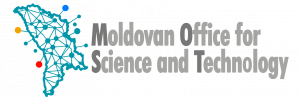The European Fund for Displaced Scientists (EFDS) has been established through a partnership between ALLEA and the Breakthrough Prize Foundation to support scholars and scientific institutions impacted by the war in Ukraine. The programme, endowed with $1.5 million, will provide funding to academic institutions in Europe to host displaced scholars, as well as to affected Ukrainian research institutions to help them maintain their operations and rebuild their scientific facilities and research collaborations. Learn more
Launch of Call for Applications – EFDS Funding Line 1
ALLEA,
the European Federation of Academies of Sciences and Humanities, is launching
the call for applications for Funding Line 1 of the
European Fund for Displaced Scientists (EFDS). Funding Line 1 provides funds to
academic institutions (including universities, academies, and other research-performing
organisations) within the Council of Europe region that are willing and able to host
displaced Ukrainian scholars.
Hosting institutions will integrate Ukrainian scholars into existing or new
research projects and departments, and commit to supporting them by providing
the required infrastructure for scholars to continue their research work in a
safe environment. The EFDS programme will offer a monthly stipend for up
to 12 months. Applications may only be submitted by the prospective host
institutions, and the maximum amount should not exceed €25,000 per hosting
arrangement. There is no limit as to how many scholars an institution can apply
funding for.
Applications will be received in two different rounds. To be considered
for the first round, complete applications must be submitted by 1
July 2022. The application form and all the relevant
information regarding the application process can be found in our dedicated page for Funding Line 1. All queries regarding the EFDS programme can be sent via
email to efds@allea.org.
A separate call for Funding Line 2 will be launched soon, which will
provide funds to affected Ukrainian institutions to help them
maintain and rebuild their research operations and networks.

